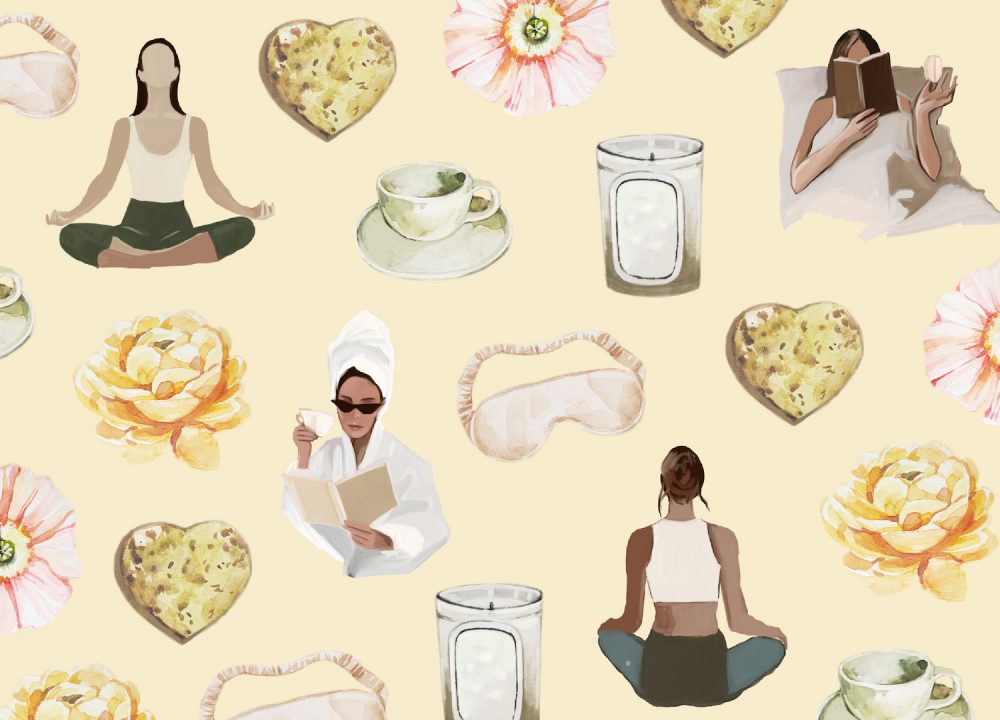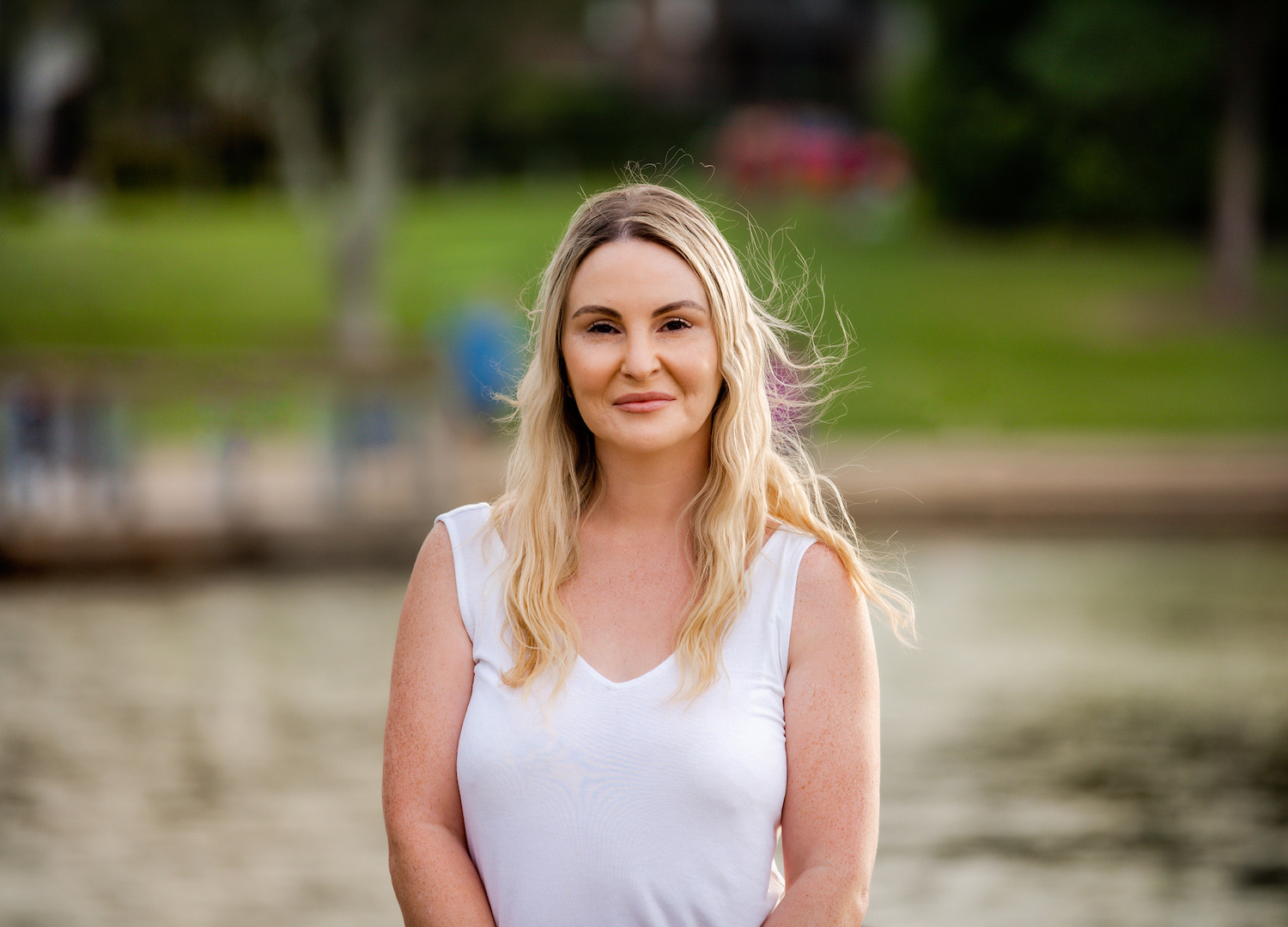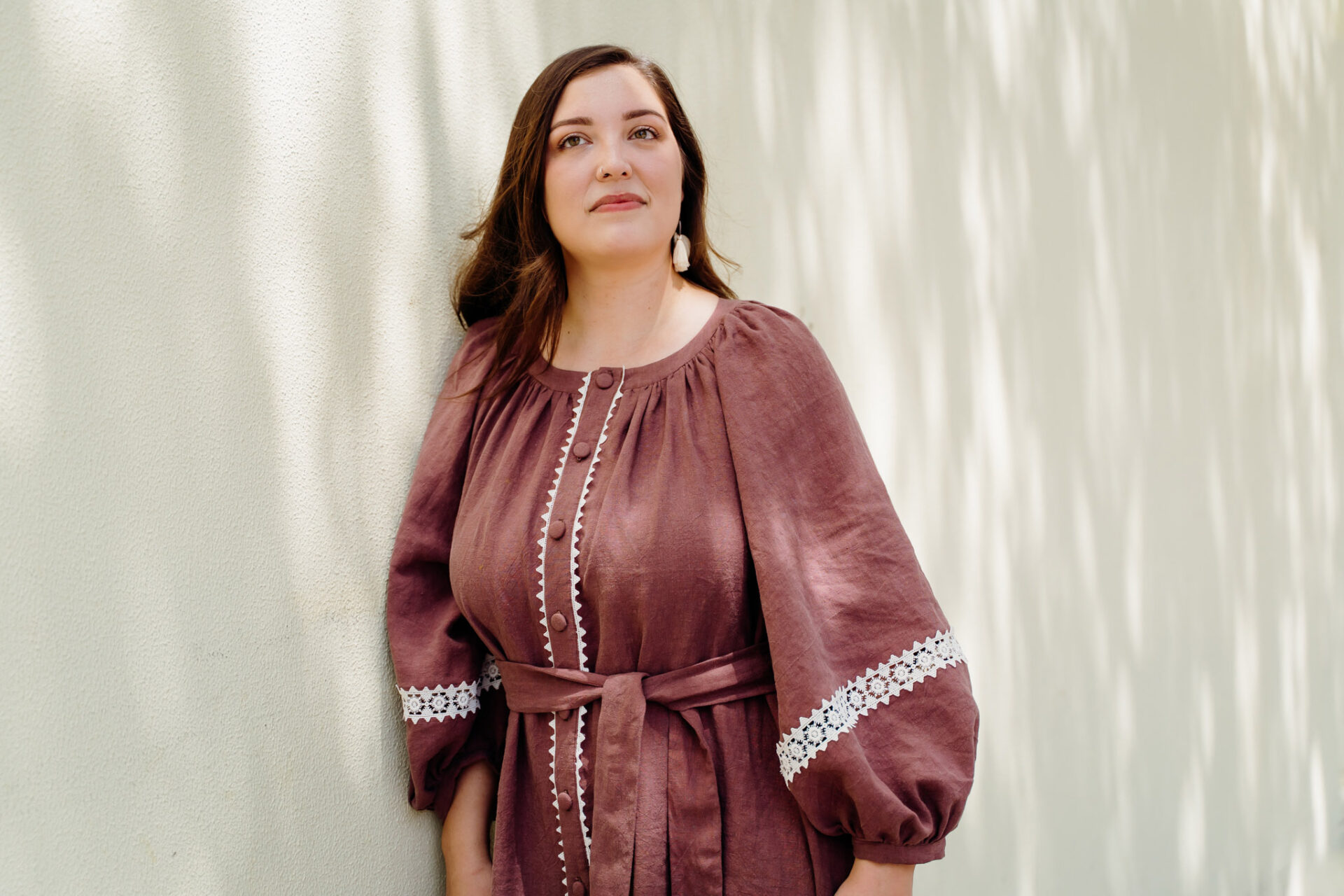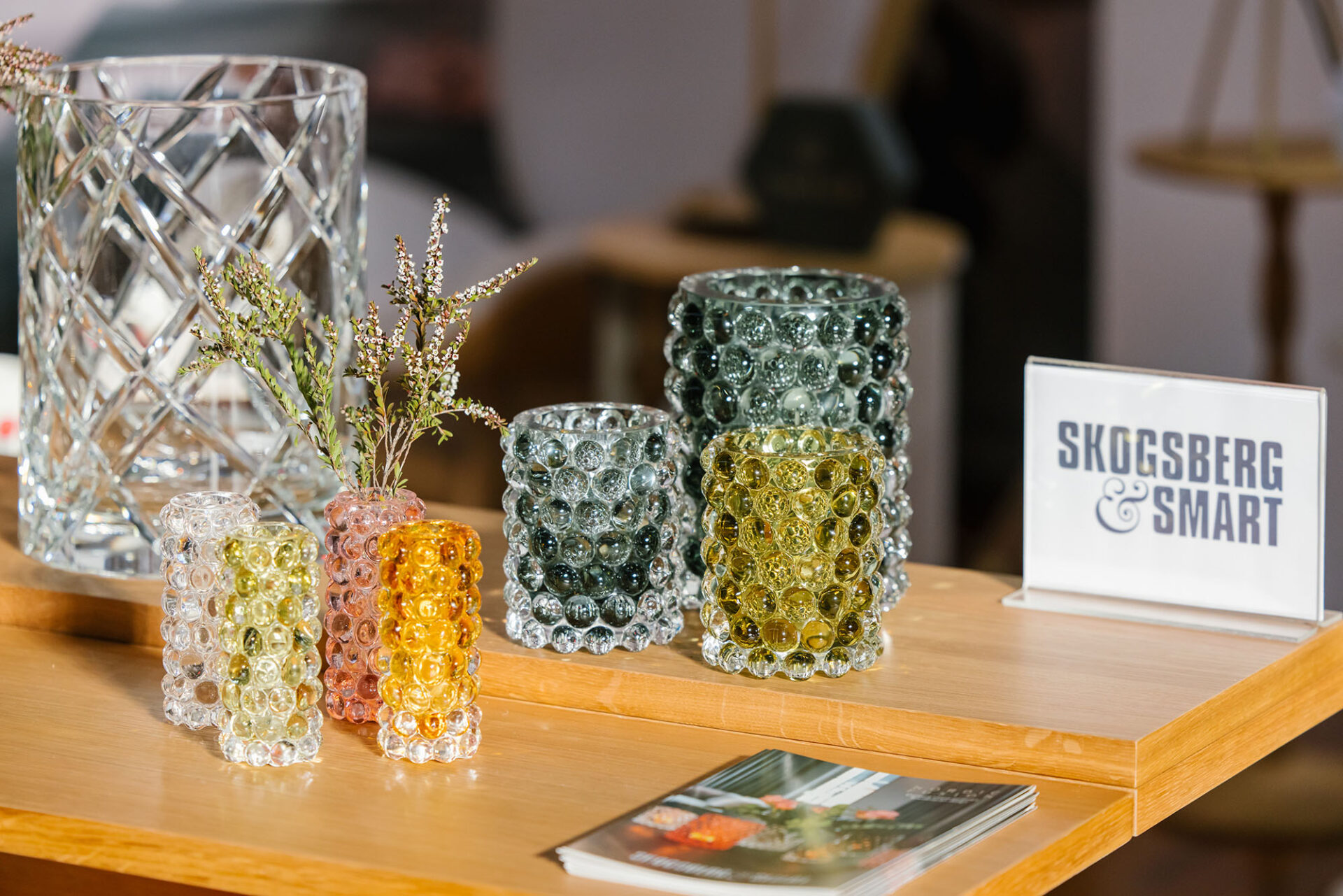So You Want to Learn More About… Mindfulness

- Words by Peppermint
According to a recent, self-conducted survey, Endeavour College found almost half (46%) of participants cared more about their health now than before the pandemic. Almost two-thirds (61%) wanted to learn more about health to better care for themselves and their loved ones. It led to the college launching its first suite of short courses – designed to be “relevant and life-applicable” while also empowering students to “take control of [their] own learning”.
In this series, created in partnership with our good friends at Endeavour, we’re taking a deep dive into these short courses – to learn more about what the suites entail and expand our knowledge from credible sources. The second of Endeavour’s four suites is mental health and wellness, so we caught up with lecturer and registered counsellor Kellie Dedman who is passionate about holistic practice, mindfulness and helping her clients to achieve happy and fulfilling lives through behavioural change.

Going behind the buzzword, what does mindfulness mean to you?
Mindfulness to me means bringing purposeful non-judgemental attention to the present moment. Whether that is being present with those around me, taking the time to stop and do nothing or when completing otherwise mundane daily tasks. I strive to make mindfulness a part of my daily life to ensure a healthy mind, maintain resilience and continue to develop my wellbeing.
READ MORE – So You Want to Learn More About… Nutrition
When did you discover the benefits of mindfulness in your own life?
My true discovery and love of mindfulness came at a time when I was experiencing changes in life and feeling the mental and physical effects of these changes. It became apparent to me that I needed to implement something in my life to help boost my health, resilience and wellbeing. Having knowledge of the benefits of mindfulness for mental health and wellbeing, I started to explore it further and look for ways to learn more and implement practices into my life. My exploration for knowledge and my passion for mindfulness have taken me as far as Cambodia where I stayed at a yoga and meditation retreat. While there I participated in daily yoga, meditation and mindfulness practices. The experience was nothing short of amazing and helped to further grow my practice and the benefits that came with it. Over the years I have found practices that work for me and my lifestyle and the benefits to my mental health and wellbeing have been evident.
Mindfulness to me means bringing purposeful non-judgemental attention to the present moment. Whether that is being present with those around me, taking the time to stop and do nothing or when completing otherwise mundane daily tasks.
Do you think the growing popularity of mindfulness sees it being misinterpreted?
In my experience, I find in most cases mindfulness is understood or the basic concepts such as ‘being present in the moment’ and ‘breathing exercises’ are understood. What I have noticed, however, is while there is some understanding as to what mindfulness is, the misinterpretation is often in why to practise mindfulness and the extensive research and proven health benefits that come from incorporating this practice into your daily life. The amazing benefits of mindfulness can range from reducing depression, anxiety and stress to promoting sleep, emotional regulation, memory, pain management, resilience and, ultimately, wellbeing.
What does mindfulness look like in your average day?
Busy lifestyles can often mean practices such as mindfulness can be put aside for tasks that can be seen as ‘more important’. I often hear from students and clients that taking time daily to incorporate mindfulness is difficult or unattainable for a lot of people when you consider family, work and other responsibilities. However, with these busy lifestyles, we see the stress and negative effects on an individual’s wellbeing and resilience and this emphasises more than ever the importance of bringing mindfulness to our daily lives. As someone who works full-time with a family, I understand the time restraints often experienced in today’s busy world.
READ MORE – “Nutrition Is Never Black and White”: Endeavour Graduates on How to Make Peace with Your Plate
So how do I overcome a busy lifestyle and find that time? For me, it’s incorporating being mindful into my daily tasks. I think most people can relate to those moments when we’re washing the dishes, putting on a load of laundry or having a shower. Our minds often focus on other tasks we need to tend to, maybe worrying about something that happened that day, or may happen tomorrow and going over it in our heads. These everyday tasks for me are a time to be mindful, bring myself to the present and incorporate my senses. I always make a point to smell those liquids and soaps in the supermarket and find one I enjoy the smell of. You could even make something with your favourite essential oils. While washing the dishes or taking a shower, I will feel the water on my hands and skin, and the warmth and texture of the bubbles or soap. I will take in the smell of the dishwashing liquid or soap. Does it smell sweet, fruity or like something else? I will take in the sound of the water swishing or running and the other sounds around me. What can I see? Is the soap bubbly or coloured? We can bring this to many different elements of our lives. There are many different ways to be mindful and practice mindfulness. What is important is trying different practices and finding what works for you.

above KELLIE DEDMAN
What are the six dimensions of wellness?
Our wellbeing can be seen as an evolving practice with capabilities we can develop and utilise. Here are six capabilities you can work on to develop and maintain your wellbeing.
Paying attention
This is an important one as paying attention is going to help to develop the other five capabilities further. Paying attention refers to focusing your attention on mindful exploring and investigation of the present moment. Through using mindfulness, meditation and paying attention to focus, you bring yourself to the here and now, exploring your experience from moment to moment in the present. This capability also allows for our development of self-awareness and self-management.
Understanding your emotions
Here we are talking about emotional intelligence, which is the ability to recognise and understand our emotions as we experience them. Through mindfulness and focussed attention, we can start to build and continue to develop our emotional intelligence and effectively understand and identify emotions.
So how does developing emotional intelligence enhance wellbeing? With emotional intelligence we are able to identify the emotion we are experiencing, bringing an understanding of that emotion to our present situation which then increases our ability to regulate emotions in the present as we experience them. Through effective emotional regulation, we enhance our wellbeing as we are not getting lost in emotions we may find difficult to cope with.
READ MORE – Everyday Endeavour: What This Nutritionist Eats to Kickstart Her Day
Coping with stress/developing resilience
From time to time, life can give us challenges and take us through life-changing events. Resilience is our ability to adapt and ‘bounce back’ from the adversities we experience in life. Building resilience is important for maintaining wellbeing and there are many ways we can develop our resilience. Stress can often be something we experience daily in our busy lives so finding skills and strategies for coping with and reducing stress is a great step in beginning to develop your resilience.
Setting goals and healthy habits
You may have noticed when you are working towards goals and developing healthy habits you feel good within yourself and motivated. Goal setting can also further build on our persistence, perseverance, engagement and self-regulation. Remember when setting goals to break them down and make them achievable. Here’s a great way to do this:
Specific: Define your goal and make it clear.
Measurable: How will you measure if you are working towards achieving this goal?
Achievable: Make sure your goal is something you can achieve.
Realistic: Is your goal realistic and relevant to you?
Timely: Define a time or target for achieving your goal.
And don’t forget to write your goal out. This way you can revisit it as needed.
Identifying and using your strengths
We all have amazing strengths and abilities. Understanding what your strengths are and focusing on these will help in your pursuit to develop wellbeing. For some of us strengths can be hard to identify in ourselves, especially with that inner critic in our heads. A great way to build self-awareness here is to ask family members and friends what they see our strengths as being. This can often be a great insight.
Developing social skills
Social skills and wellbeing are characterised by our meaningful connections to others. This includes our families, friends, work colleagues and connections to our community.
Building resilience is important as it increases our ability to adapt and ‘bounce back’ from the adversities we experience in life. There are many ways to build on our resilience – gratitude and compassion are just two of the building blocks we can use.
What are some practical ways we can manage day-to-day stress?
There are many ways to manage stress, from problem- and emotion-focused coping to guided meditations and cognitive behavioural strategies. However, my go-to is breathing exercises for stress reduction. Not only are they beneficial in helping you re-focus while reducing tension and overwhelm, but you can also do them anywhere, at any time, and no one needs to know you are doing them.
Here is my go-to breathing exercise for stress reduction:
- Start by breathing in and out slowly. One breath cycle should last for approximately four seconds.
- Breathe in through your nose and out through your mouth, noticing your breath as it flows in and out of your body.
- Let go of your thoughts and concentrate on your breath, counting in for four and out for four.
- Purposefully watch your breath. Notice the cool air as it enters through your nose and the warmth as you breathe out through your mouth.
- Do this for as long as you need to bring yourself back to the present moment and feel your mind and body relax.
Why are resilience, compassion and gratitude so important for balanced living?
Building resilience is important as it increases our ability to adapt and ‘bounce back’ from the adversities we experience in life. There are many ways to build on our resilience – gratitude and compassion are just two of the building blocks we can use. Gratitude is a great way to build resilience as it increases positive emotions and the ability to cope with stress. It invites us to mindfully take the time to think about what we are grateful for in our lives. Compassion has also been shown to have many health benefits that increase positive emotions and wellbeing. When we are able to incorporate gratitude, compassion and resilience into our lives, they increase wellbeing and help develop a balanced life.
READ MORE – Everyday Endeavour: Roll Into the Weekend With This Vegetarian Meatball Recipe
What’s the best way to ensure lifestyle changes remain sustainable and for the long term?
Start with making goals to work towards those changes you want to make. Ensure they are realistic and achievable, otherwise, you can become disheartened, lose focus and abandon them. I always encourage setting goals with your personal values in mind. When something is important to you and in line with what you value, you’re more likely to stick with it. Take time to stop and reflect on how you are going and how you are feeling. When lifestyle changes are working and you can feel the benefits, you are more likely to be motivated to continue. Most importantly, take time to care for yourself! When we don’t take care of ourselves, we become burned out meaning we can lose motivation and focus.

This article was created in partnership with our friends at Endeavour College of Natural Health. Who, across six campuses around Australia (Sydney, Melbourne, Brisbane, Gold Coast, Perth and Adelaide), offer Bachelor of Health Science degrees in naturopathy, nutritional and dietetic medicine, acupuncture therapies and Chinese medicine, as well as four undergraduate certificates, diplomas in Chinese remedial massage and health science, and a range of online short courses. For more information visit endeavour.edu.au.
JOIN OUR MAILING LIST
Brighten up your inbox with our not-too-frequent emails featuring Peppermint-related news, events, competitions and more!
explore
More articles
Look, I don’t want to make anyone panic but IT’S DECEMBER!!! If you’re planning to give homemade gifts, you’re going to have to act fast. …
Hang out with us on Instagram
🌻 The Paddington 🌻
This is a much-loved staple, created for Issue 50 in 2021. We love seeing the #PeppermintPaddingtonTop continually popping up in our feeds!
How stunning is our model Elon MelaninGoddessEfon – she told us it was one of the first times she had been asked to come to a shoot with her natural hair. 🌻
We worked with South African patternmaker Sarah Steenkamp of @FrenchNavyNow_ to create this wardrobe essential – the perfect puff-sleeve blouse. Raglan sleeves make it the ultimate beginner sew, plus the gorgeous back buttons let you add your own personal twist.
Pattern via the link in bio! 🪡
Photos: @KelleySheenan
Fabric: @Spoonflower
Model: MelaninGoddessEfon

“In the 1940’s, Norwegians made and wore red pointed hats with a tassel as a form of visual protest against Nazi occupation of their country. Within two years, the Nazis made these protest hats illegal and punishable by law to wear, make, or distribute. As purveyors of traditional craft, we felt it appropriate to revisit this design.”
Crafters have often been at the heart of many protest movements, often serving as a powerful means of political expression. @NeedleAndSkein, a yarn store in Minnesota, are helping to mobilise the craftivists of the world with a ‘Melt The Ice’ knitting pattern created by @Yarn_Cult (with a crochet pattern too), as a way of peaceful protest.
The proceeds from the $5 pattern will go to local immigrant aid organisations – or you can donate without buying the pattern.
Raise those needles, folks – art and craft can change the world. 🧶
Link in bio for the pattern.
Images: @Gather_Fiber @NeedleAndSkein @a2ina2 @KyraGiggles Sandi.204 @WhatTracyMakes AllieKnitsAway Auntabwi2
#MeltTheIce #Craftivism #Knitting #CraftForChange

TWO WEEKS TO GO! 🤩
"The most important shift is moving from volume-led buying to value-led curation – choosing fewer, better products with strong ethics, considered production and meaningful stories. Retailers have real influence here: what you buy signals what you stand for. At Life Instyle, this means using the event to discover and invest in small-scale, planet-considerate brands that align with your values and your customer’s conscience. Consumers don’t need more things; they need better things, and retailers play a key role in selecting, contextualising, and championing why those products matter."
Only two more weeks until @Life_Instyle – Australia`s leading boutique retail trade show. If you own a store, don`t miss this event! Connect with designers, source exquisite – and mindful – products, and see firsthand why this is Australia’s go-to trade show for creatives and retailers alike. And it`s free! ✨️
Life Instyle – Sydney/Eora Country
14-17 February 2026
ICC, Darling Harbour
Photos: @Samsette
#LifeInstyle #SustainableShopping #SustainableShop #RetailTradeEvent

Calling all sewists! 📞
Have you made the Peppermint Waratah Wrap Dress yet? Call *1800 I NEED THIS NOW to get making!
This gorgeous green number was modelled (and made) by the fabulous Lisa of @Tricky.Pockets 🙌🏼
If you need a nudge, @ePrintOnline are offering Peppermint sewists a huge 🌟 30% off ALL A0 printing 🌟 when you purchase the Special Release Waratah Wrap Dress pattern – how generous is that?!
Head to the link in bio now 📞
*Not a real number in case that wasn`t clear 😂
#PeppermintWaratahWrapDress #PeppermintPatterns #SewingPattern #WrapDress #WrapDressPattern

8 Things to Know About January 26 - from @ClothingTheGaps:
Before you celebrate, take the time to learn the truth. January 26 is not a day of unity it’s a Day of Mourning and Survival for Aboriginal and Torres Strait Islander peoples.
It marks the beginning of invasion, dispossession, and ongoing colonial violence. It’s time for truth-telling, not whitewashed history.
Stand in solidarity. Learn. Reflect. Act.
✊🏽 Blog written by Yorta Yorta woman Taneshia Atkinson.
🔗 Link in bio of @ClothingTheGaps to read the full blog
#ChangeTheDate #InvasionDay #SurvivalDay #AlwaysWasAlwaysWillBe #ClothingTheGaps

As the world careens towards AI seeping into our feeds, finds and even friend-zones, it`s becoming increasingly hard to ignore.
We just wanted to say that here at Peppermint, we are choosing to not print or publish AI-generated art, photos, words, videos or content.
Merriam-Webster’s human editors chose `slop` as the 2025 Word of the Year – they define it as “digital content of low quality that is produced usually in quantity by means of artificial intelligence.” The problem is, as AI increases in quality, it`s becoming more and more difficult to ascertain what`s real and what`s not.
Let`s be clear here, AI absolutely has its place in science, in climate modelling, in medical breakthroughs, in many places... but not in replacing the work of artists, writers and creatives.
Can we guarantee that everything we publish is AI-free? Honestly, not really. We know we are not using it to create content, but we are also relying on the artists, makers and contributors we work with, as well as our advertisers, to supply imagery, artwork or words created by humans. AI features are also creeping into programs and apps too, making it difficult to navigate. But we will do our best to avoid it and make a stand for the artists and creatives who have had their work stolen and used to train AI machines, and those who are now losing work as they are replaced by this energy-sapping, environment-destroying magic wand.
Could using it help our productivity and bottom line? Sure. And as a small business in a difficult landscape, that`s a hard one to turn down. We know other publishers who use AI to write stories, create recipes, produce photo shoots... but this one is important to us.
`Touch grass` was also a Merriam-Webster Word of the Year. We`ll happily stick with that as a theme, thanks very much. 🌿

















